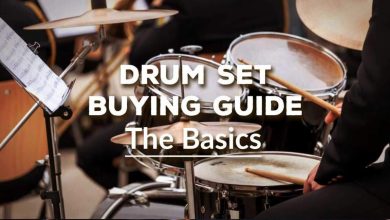Piano’s Influence on Music Theory: Harmonic Foundations and Progressions

Piano’s Influence on Music Theory: Harmonic Foundations and Progressions
The Role of Piano in Music Theory
Playing the piano has long been revered as a fundamental skill for musicians. Beyond its role as a versatile and expressive instrument, the piano holds a deep influence on the study and understanding of music theory. Let’s dive into how the piano has shaped harmonic foundations and progressions in music.
Harmonic Foundations: Building Blocks of Music
The piano provides a unique advantage when it comes to understanding and applying music theory concepts. With its layout of black and white keys, the piano offers a visual representation of musical intervals, chords, and scales. This tactile experience helps musicians grasp fundamental musical elements more easily.
When it comes to harmonic foundations, the piano allows musicians to explore and experiment with different chords and chord progressions. By playing and listening to various combinations of notes, pianists can develop a keen sense of how different harmonies can evoke different emotions and moods.
Progressions: Unraveling Musical Patterns
One of the piano’s most significant contributions to music theory is in unraveling the patterns found in chord progressions. With the ability to play multiple notes simultaneously, pianists can analyze, recreate, and compose chord progressions more effectively.
The piano’s layout, combined with its polyphonic nature, allows musicians to visualize patterns, such as the circle of fifths, which is crucial in understanding tonal relationships. This understanding helps musicians compose melodies and harmonies that flow naturally and create a sense of musical coherence.
Frequently Asked Questions (FAQs)
Q: Is playing the piano essential for understanding music theory?
A: While it is not mandatory to play the piano to understand music theory, it undeniably facilitates the learning process. The piano’s layout enables visual and tactile exploration of musical concepts, making it easier to grasp and apply theoretical ideas.
Q: Can I learn music theory without owning a piano?
A: Yes, you can learn music theory without owning a piano. There are various online resources, including virtual piano keyboards and MIDI controllers, that can help you explore and understand music theory concepts. However, having access to a physical piano can greatly enhance your learning experience.
Q: How does understanding harmonic foundations and progressions benefit composers?
A: Understanding harmonic foundations and progressions allows composers to create rich and intricate musical compositions. With a solid grasp of harmonic principles, composers can convey emotions, build tension, and create memorable melodies. It provides a toolbox of techniques and ideas to enhance their musical creations.
Q: Can harmonic foundations and progressions be used in non-classical music genres?
A: Absolutely! While often associated with classical music, harmonic foundations and progressions are applicable to various music genres. Whether you’re composing pop, jazz, or rock music, understanding and applying harmonic principles can elevate your compositions and make them more interesting to listeners.
In conclusion, the piano’s influence on music theory is undeniable. Its layout, tactile nature, and polyphonic capabilities provide musicians with a powerful tool for understanding and applying harmonic foundations and progressions. Whether you’re a composer or a music enthusiast, embracing the piano as a fundamental part of your musical journey can enhance your understanding and appreciation of music theory. So, grab a seat at the piano and explore the harmonies that shape the world of music.
Remember, practice makes perfect, and the piano offers endless possibilities for creative exploration in music theory.
Would you like to learn more about the piano’s role in music theory or explore tutorials on harmonic progressions? Feel free to reach out or check our recommended resources to deepen your knowledge.



